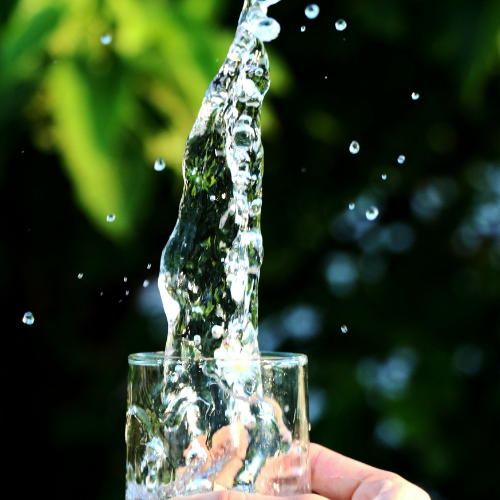Did you know that dehydration can trigger or worsen symptoms of anxiety, stress, panic attacks and even depression? I certainly didn’t until I experienced it myself. It turns out, there’s a powerful link between how hydrated you are and how you feel emotionally and mentally.
Let me explain why staying hydrated is about so much more than just quenching your thirst.
Your Brain Needs Water Desperately
Blood plasma is made up of around 90% water and plays a key role in transporting oxygen throughout your body, including to your brain. When you’re dehydrated, your brain doesn’t receive the oxygen it needs to function properly. This sets off alarm bells in your system, pushing your body into “survival mode” or the classic fight-or-flight response. Suddenly, even small things can feel overwhelmingly stressful.
Dehydration Mimics a Panic Attack
The symptoms of dehydration can mirror those of a panic attack. Your heart rate increases, your chest might feel tight and you could feel faint or dizzy. It’s no wonder dehydration can exacerbate anxiety – it’s using the same physiological pathways.
Mood Swings and Brain Fog? Could Be a Water Deficiency
Water is essential for balancing mood and energy levels. Without enough of it, you may experience tiredness, brain fog, low motivation and even depression. These symptoms can derail your routine, make your goals feel unachievable and increase the sense that you’re stuck or not progressing.
Dehydration Impacts Memory and Focus
Your working memory relies heavily on hydration. When you’re low on water, your brain struggles to process and retain information. You might notice difficulty concentrating, increased anxiety, or even slurred speech – all of which can be incredibly frustrating.
Toxins Build Up, Affecting Mood
Hydration helps your body flush out toxins. Without enough water, your body starts pulling water from the colon to aid digestion, which can lead to constipation. And believe it or not, this buildup of toxins can affect your mood, leaving you feeling sluggish, dizzy, or irritable.
Poor Sleep? It Could Be Dehydration
Water is also needed to produce amino acids that help build melatonin – the hormone that regulates sleep. When you’re dehydrated, you may find it harder to fall asleep or stay asleep, which in turn triggers more stress and anxiety. It’s a vicious cycle.
How Much Water Do We Actually Need?
The general guideline is around 3 litres a day: 2 litres from drinking water and 1 litre from water-rich foods. When we’re not drinking enough, the body compensates by increasing hunger, often for high-calorie foods, because it needs the liquid and energy to keep functioning. It also starts holding onto the water it does get, which can leave you feeling heavy, sluggish and even more stressed.
What Happens When You Start Drinking More Water?
By increasing your water intake, you can:
-
- Ease symptoms of depression, anxiety, stress and panic attacks
-
- Support the release of happy hormones, improving your overall mood
-
- Think more clearly, make quicker decisions and stick to your goals
-
- Enjoy better quality sleep
-
- Feel calmer and more in control
It’s easy to underestimate the power of water when we think about mental health. But keeping your body hydrated is one of the simplest, most natural ways to support your emotional and mental wellbeing.
Next time you feel overwhelmed, tired, or low, reach for a glass of water. Your mind might just thank you for it.

Elena Eleftheriadou is an Executive Coach and Integrative Therapist with a purpose and passion to help people communicate more effectively, diminish stress and anxiety and prevent burnout to improve their work-life balance.

